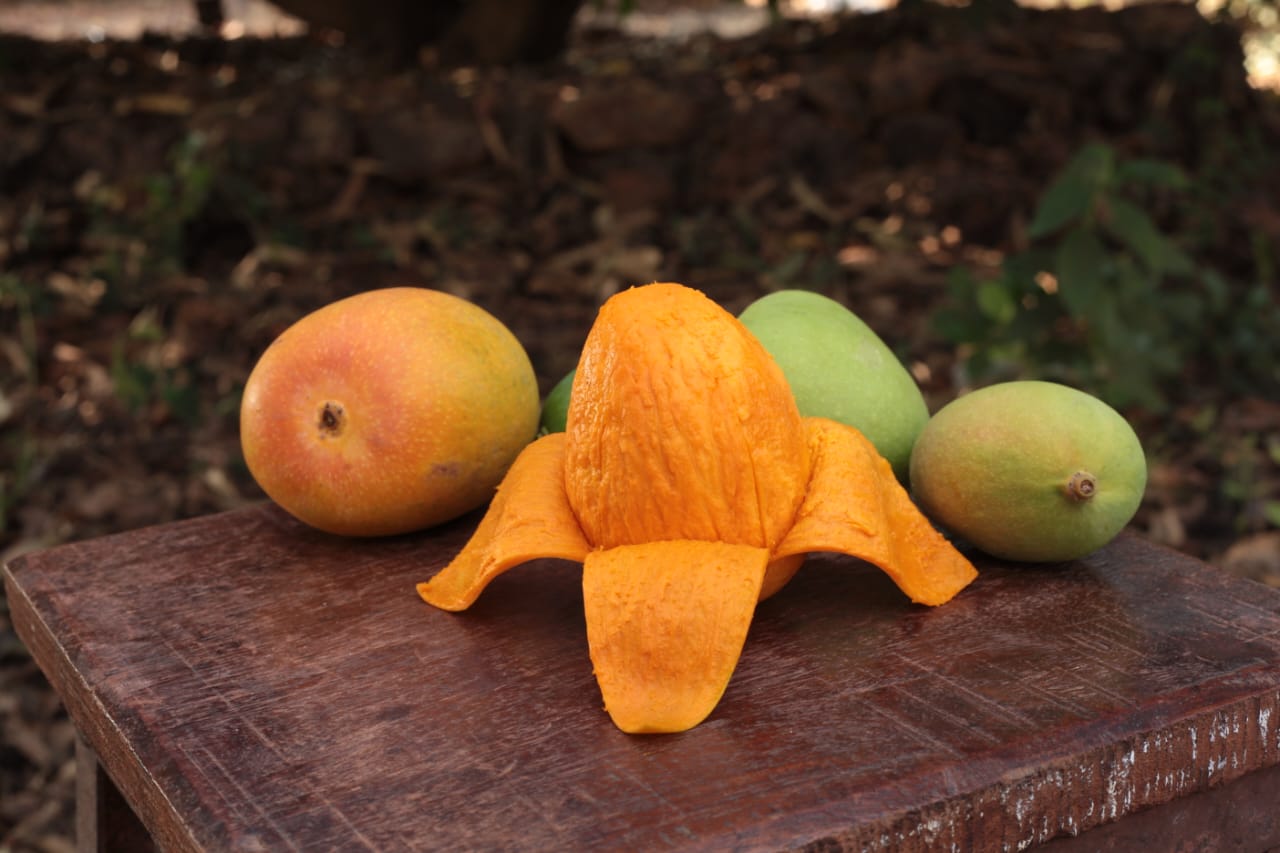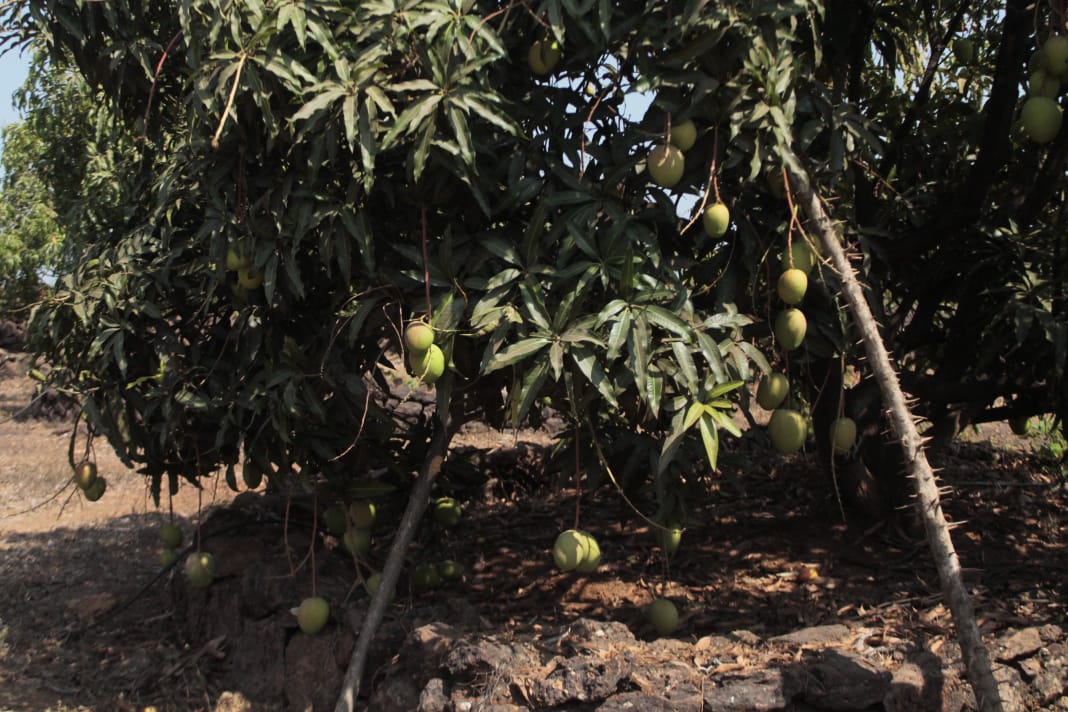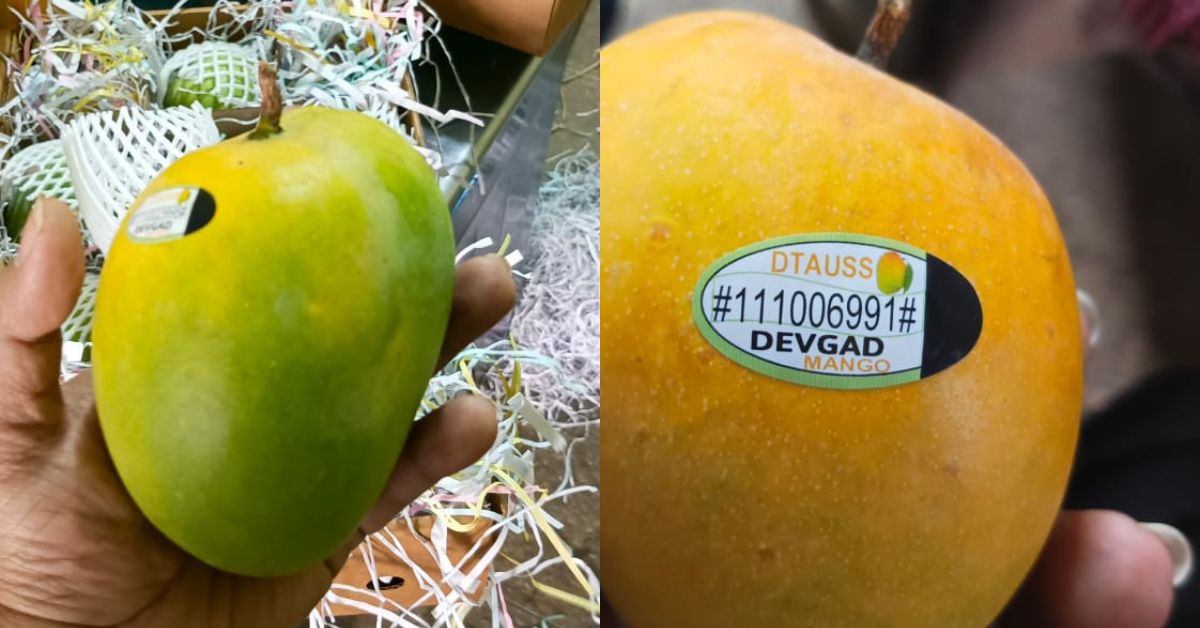The most awaited season each year in several houses would be the mango season and whenever I see the first mango in the market, my face invariably breaks into a huge smile.
It’s the king of fruits for a reason, isn’t it? Very few moments compare to the happiness one experiences while relishing a juicy mango, getting our hands and faces yellow in the process.
For me, and many people from Maharashtra, the best mango is the Hapus or the Alphonso.
Grown majorly in the Konkan region, different varieties exist depending on the district, size and the flavour of the mango. However, mango purists claim to be able to identify if it’s an actual Hapus mango just by touching or smelling it.
I myself have been disappointed many times to find out that the mango which I paid a premium for, was not really an Alphonso.
While the market is filled with mangoes right from February and March with many claiming to be selling the Ratnagiri or Devgad Hapus, how does a customer differentiate? How do we ensure that the mango that we are paying an arm and leg for is truly what it claims to be?
Despite Ratnagiri, Sindhudurg, Palghar, Thane and Raigad district receiving the GI (Geographical Indication) tag in 2018, the rampant adulteration in mangoes is affecting the hardworking farmers as well as the customers.

Even amongst these mangoes, the Devgad variety sells for a premium, ranging from Rs 1,000 to even a whopping Rs 3,500 per dozen!
Farmers from Devgad, which falls in Sindhudurg district, first tried QR codes, bar codes and other methods to ensure authenticity. When middlemen found a way to tamper with these too, the Devgad Taluka Mango Grower’s Co-operative Society Limited found a unique way to protect their mangoes.
This patented technology involves a tamper-proof sticker which cannot be replicated and ensures complete transparency and traceability. Here’s what it is and how it works.
What makes the Devgad Hapus unique
Formed in 1987, the Devgad Taluka Mango Grower’s Co-operative Society has over 900 farmers, while the entire taluka has 2,000 farmers. “It was initially formed to bring small farmers together and help them take their produce to the market directly,” explains Omkar Sapre, the board member and advisor of the society.

“We started selling online, especially post COVID-19, which allowed us to reach customers directly. When you visit markets in Mumbai, you see many people selling the Devgad variety. Either they mix cheaper varieties with the original ones or just add stickers stating that it is from Devgad. To combat this, we applied for a GI tag, which we received in 2018,” Omkar shares with The Better India.
A GI tag is meant to protect the intellectual property of the producer, in this case, the farmer, and the place of origin, Devgad. It is additionally meant to benefit, enforce quality and prevent adulteration.
“The lower quality mangoes which were being sold under the name of Devgad Hapus affected the Devgad brand. We wanted to establish the source and quality. We tried barcode printing, edible ink, magnetic patterns and several other methods. They were all getting replicated by fakes,” he adds.
What one needs to understand is that the Devgad mango has a unique flavour due to the topography of the region.
“Devgad has hard laterite rocks, which gives the fruits a splendid aroma. The high altitude gives it its unique taste,” explains Omkar.
Santosh Patkar, a farmer, states that what differentiates the Devgad variety from the ones found in Ratnagiri and other regions is its taste, colour, thin skin, and minimal fibre percentage. Speaking about the identity crisis, he shares that people are selling fake Devgad mangoes even after their production is over for the year.
“People are selling mangoes from Karnataka and calling it Devgad Hapus. Retailers and online stores are duping people while charging a bomb. Due to this, our rate and value is also coming down,” he says.
How it works
As mentioned earlier, the problem with QR codes or bar codes is that it can be copied. Prashant Yadav, an engineer and founder of Sun Solutions, developed the patented technology.
Simply put, the unique code of each product is divided into two parts, one above the seal and one below it. To access the entire code, one would have to tear the sticker, effectively keeping away counterfeits.

“My patent is for hiding the identity of the unique code. We divide each code into two parts, with one half hidden below the sticker. There are two digits below the sticker. Customers can take a photo of the label and send it the number mentioned. You can then tear off the sticker and send the remaining two digits,” explains Prashant.
The software analyses the image and confirms through the database whether the product is one of theirs or not. The entire code is matched with the additional two digits sent as a caption on WhatsApp.
Prashant received the patent in 2021 for the tamper preventive seal. It is single use and can be authenticated by customers through WhatsApp.
“This will help the brand equity of the Devgad Hapus,” adds Omkar. “This will also help the next generation continue farming as they can reap the fruits of their labour.”
“We hope that people will start recognising the true Devgad Hapus and consider the work that goes behind it. Our livelihoods are dependent on it,” shares Santosh.
The next time you buy Devgad Alphonso, be sure to check the code!
You can order these mangoes from the cooperative here.
Edited by Padmashree Pande, Images Courtesy Omkar Sapre